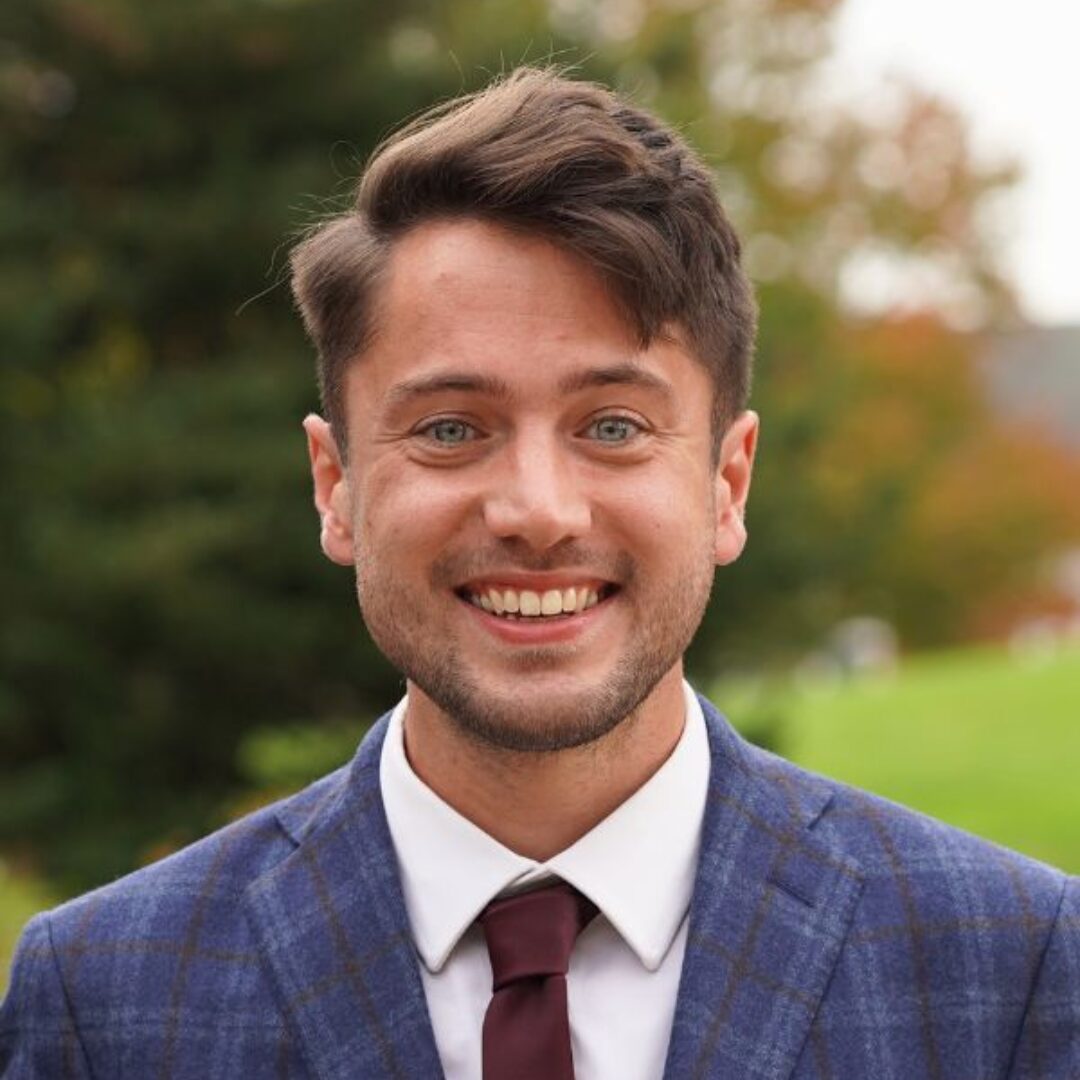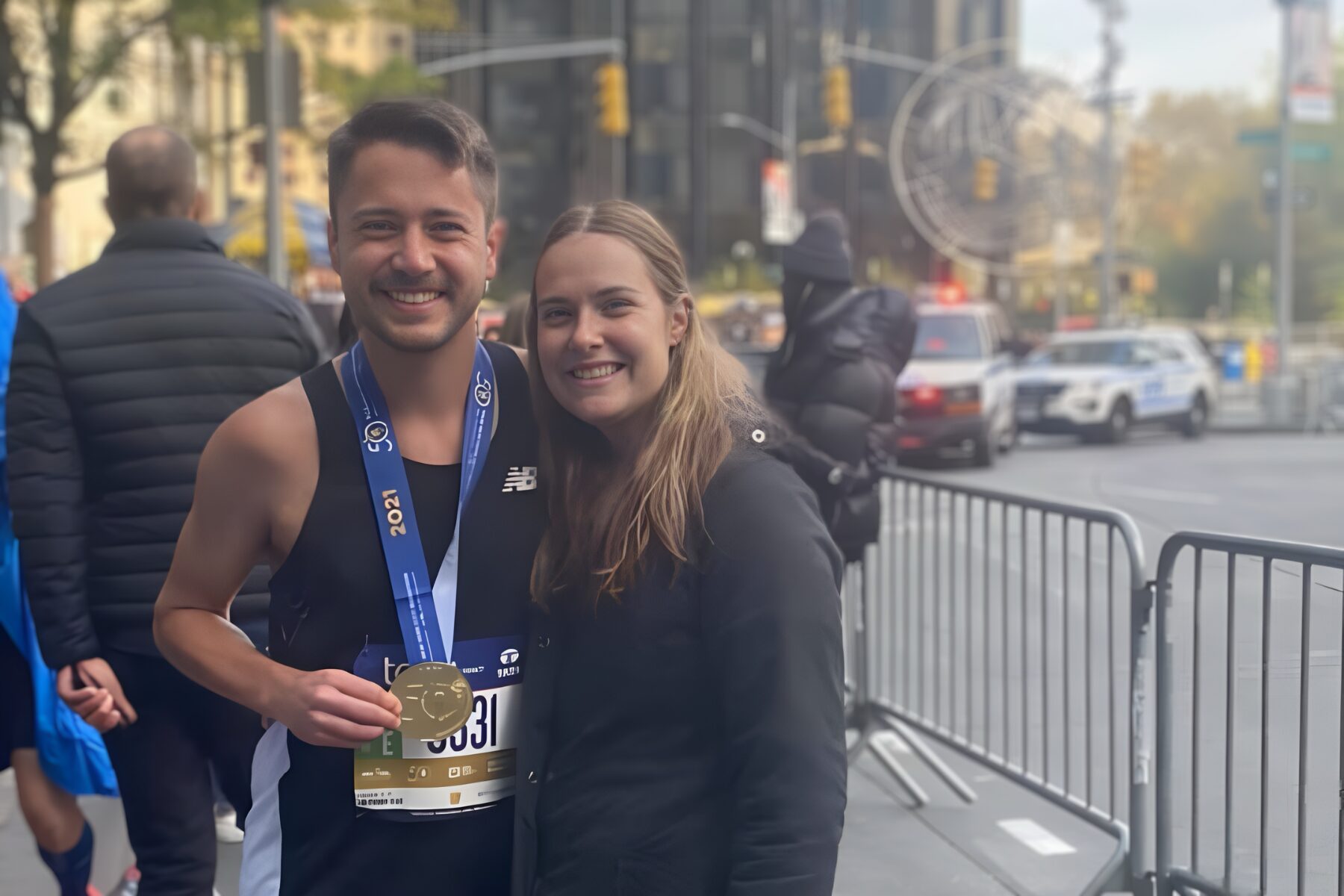Christian Discipleship and the Marathon
Michael Caleb Harris
When someone thinks about Gordon-Conwell Theological Seminary, myriad associations may come to mind. Being the alma mater of a former world record holder in the mile might seldom make that list. Nonetheless, one of the parent schools of this institution, Gordon Divinity School, brings this title into Gordon-Conwell’s rich history. Gil Dodds (BDiv ’45), also known as “The Flying Parson,” set the world record in the indoor mile a total of three times, two of which were during his schooling at Gordon Divinity. To my knowledge, he is one of the only notable runners to have graduated from Gordon-Conwell or its parent institutions.
Maintaining a high level of training while in graduate school is undoubtedly demanding. While I am not near the athlete that Dodds was, I may hold the title for the most miles run while a student at Gordon-Conwell. When I came to Gordon-Conwell, I was a bit more of what you would call a hobbyist than a true enthusiast of running. However, I was able to come within minutes of a qualifying time for the Boston Marathon (or a “BQ”) during my first semester. For better or worse, this solidified a deep passion for the discipline of running (and six BQs since then).
Throughout these past few years, both my academic journey and my running journey have been characterized by varying levels of success and failure. To me, this reflects the trajectory of our lives as disciples of Christ. The New Testament is flooded with running and athletic metaphors. While I am not necessarily an adherent to “Muscular Christianity,” I have seen first-hand how the disciplines of running and the disciplines of Christianity intersect. Eugene Peterson’s description of the Christian life as “a long obedience in the same direction” (co-opted from Nietzsche) would seem to similarly apply to the task of training for a marathon (a practice he undertook many times).
There are no shortcuts to marathon running. Like our Christian discipleship, the practice of training for a marathon is a lengthy endeavor. Mile after mile, month after month, year after year, your body adapts to the intensity of your training. As you increase your weekly mileage, your body naturally strengthens itself. Setbacks may occur as you toe the line between fitness and injury, characterized by my tongue-in-cheek mantra to “get fit or get injured,” but it is the risk you take as you undergo this discipline. To endure the rigorous regulation demanded to run a marathon well, you have to be willing to take some sort of risk–you have to be willing to sacrifice your body, your time, and your pride.
I won’t belabor the point since I could continue to make endless connections between discipleship and running. But I have become increasingly aware through this practice of the sort of discipline that is required for a student and a disciple. Certainly, there have been many times throughout my graduate studies that I have had to adjust my training or my studying plans as either has required more time in a given week. Amidst those negotiations, I have grown fond of balancing my goals to grow spiritually, mentally, and physically. As I look to those who have undertaken similar balancing acts, like Gil Dodds and Eugene Peterson before me, I am inspired to “run with perseverance the race” set before me. This is the mindset with which I approach the finish line of both the Boston Marathon this April and my time at Gordon-Conwell as I graduate this May.
 M. Caleb Harris is running in this year’s Boston Marathon. He is a Master of Arts in Theological Studies student at Gordon-Conwell, a 2023–24 Rosell Scholar, and is set to graduate this May.
M. Caleb Harris is running in this year’s Boston Marathon. He is a Master of Arts in Theological Studies student at Gordon-Conwell, a 2023–24 Rosell Scholar, and is set to graduate this May.
